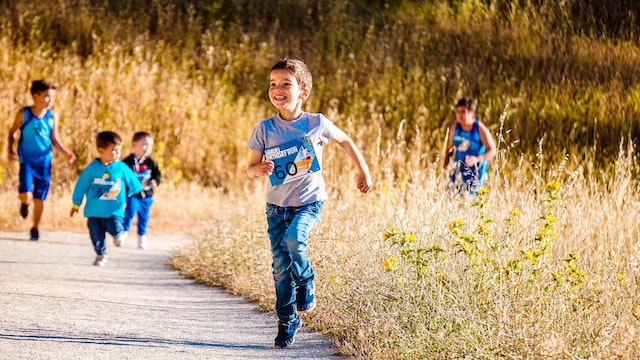In today’s world, where technology has taken over, it can be a challenge to raise an active child.
However, it is crucial for children to engage in physical activity to maintain good health and well-being.
In this article, we will discuss some tips on how to raise an active child by
redirecting them towards imaginative play and the benefits of this type of play.
Tips on Raising an Active Child
Encourage outdoor play:
Provide your child with ample opportunities to play outside in nature.
Go for walks, hikes, bike rides, or simply play in the backyard.
Outdoor play promotes physical activity and helps children develop a connection with the natural world.
Limit screen time:
Excessive screen time can lead to a sedentary lifestyle.
Set limits on the amount of time your child spends watching TV or playing video games.
Encourage them to engage in physical activities instead.
Provide a variety of physical activities:
Offer your child a variety of physical activities to choose from, such as sports, dance, swimming, or martial arts.
This allows them to find an activity they enjoy and look forward to.
Make physical activity fun:
Children are more likely to engage in physical activity if it is enjoyable.
Make it fun by playing games, creating challenges, or doing it together as a family.
Benefits of Imaginative Play
Imaginative play, also known as pretend play or make-believe play, is an essential part of a child’s development.
It involves using the imagination to create scenarios, characters, and stories, and can take many forms, including playing dress-up, building with blocks, or creating art.
Here are some of the benefits of imaginative play:
Develops creativity and problem-solving skills:
Imaginative play encourages children to think creatively and come up with solutions to problems that arise during play.
Enhances social skills:
Imaginative play allows children to practice social skills such as sharing, taking turns, and communicating with others.
Promotes language development:
Children use language to create scenarios and characters during imaginative play, which can help with vocabulary, grammar, and storytelling.
Supports emotional development:
Imaginative play allows children to explore and express their emotions in a safe and supportive environment.
Encourages physical activity:
Many forms of imaginative play involve physical activity, such as playing dress-up, building forts, or creating obstacle courses.
In conclusion,
Raising an active child is essential for their physical and mental well-being.
By redirecting them towards imaginative play, parents can promote physical activity and enhance their child’s creativity, problem-solving, social, language, and emotional development.
Encourage your child to engage in imaginative play, and provide them with a safe and supportive environment to explore and create.
![]()











